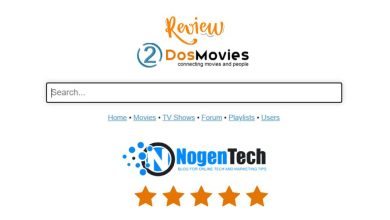What is CRM Software? Features, Benefits, and Best Practices
CRM software (Customer Relationship Management software) is a tool businesses use to manage interactions with customers and leads in one centralized system.

The proper management of customer relationships has not always been a necessity or more complex. Businesses compete not only based on their products but on the basis of their experiences and delivery of personalized interactions, while understanding the customers helps them to stand out.
In this regard, the investment in the right CRM software is important as it is a step towards long term success.
Over the years, I have had the opportunity to work with a variety of CRM platforms: some intuitive, others overly complex, and through that experience, I’ve learned what really matters when choosing and using a CRM system effectively to improve customer satisfaction and drive business growth.
In this guide, I have detailed what CRM software is, its key features, benefits, and best practices to maximize its effectiveness.
Key CRM Usage & Impact Statistics
✅92% of businesses acknowledge the vital role of CRM software in achieving their revenue goals by driving growth and alignment across sales, marketing, and customer service teams.
✅91% of businesses with more than 11 employees now use CRM systems that shows a widespread adoption.
✅Cloud-based CRM platforms dominate, with 87% of businesses using cloud CRMs for scalable and remote access to customer data.
✅The average ROI from CRM investments is about $8.71 for every $1 spent, which illustrates the strong financial benefits of CRM adoption.
✅CRM usage improves productivity as 50% of teams report productivity gains using mobile CRM apps, and sales forecast accuracy improves by 42% with CRM tools.

What is CRM Software?
CRM (Customer Relationship Management) software is a technology designed to manage a company’s relationships and interactions with customers, prospects, and other business contacts.
CRM software stores customer information such as contact details, communication history, purchase records, and service issues. It enables businesses to track interactions across different channels like emails, phone calls, social media, and more.
CRM systems are widely used in sales, marketing, customer support, and even operations to manage relationships efficiently.
💡Pro Tip: Do not overload your CRM with unnecessary data fields; it slows performance and user adoption.

10 Major Features of CRM Software in 2026
1. Contact Management
- What it does: CRM system stores and organizes customer information such as names, phone numbers, email addresses, social media profiles, and communication history.
- Why it matters: It helps businesses keep track of every customer interaction. Hence, it makes it easier to personalize communication and build stronger relationships.
2. Sales Management
- What it does: You can track sales opportunities, manage pipelines, forecast revenue, and monitor sales team performance.
- Why it matters: You can get insights into the sales process and help teams close deals faster and more efficiently while identifying potential bottlenecks.
3. Lead Management
- What it does: Captures, tracks, and manages leads from various sources. As a result, you will be able to assign them to the right sales representatives.
- Why it matters: Improves conversion rates by nurturing leads through the sales funnel with targeted follow-ups and timely communication.
4. Marketing Automation
- What it does: Automates marketing tasks such as email campaigns, social media posts, and targeted ads based on customer behavior.
- Why it matters: Enhances marketing efficiency, saves time, and ensures the right audience receives personalized, relevant content.
5. Customer Support and Service
- What it does: Manages customer inquiries, support tickets, and service requests efficiently through a unified platform.
- Why it matters: Ensures timely responses and high customer satisfaction that lead to better retention rates and improved brand loyalty.
6. Analytics and Reporting
- What it does: Provides insights into customer behavior, sales performance, marketing campaigns, and overall business metrics through dashboards and reports.
- Why it matters: Helps make data-driven decisions, identify trends, and measure the effectiveness of business strategies.
7. Workflow Automation
- What it does: Automates repetitive tasks such as follow-up emails, task assignments, and data entry.
- Why it matters: Reduces manual work, minimizes errors, increases productivity, and allows teams to focus on more strategic activities.
8. Integration Capabilities
- What it does: Integrates with other tools like email clients, accounting software, social media platforms, and e-commerce sites.
- Why it matters: Creates a seamless workflow across different departments to improve efficiency, data accuracy, and collaboration.
9. Mobile Access
- What it does: Offers mobile apps or responsive designs for managing CRM functions on the go.
- Why it matters: Empowers sales and support teams to access critical information anytime, anywhere. Ultimately, it enhanced responsiveness and flexibility.
10. Customization
- What it does: Allows businesses to customize the CRM to their specific processes, fields, and workflows.
- Why it matters: Ensures the system aligns with unique business requirements to enhance usability, effectiveness, and user adoption.
8 Benefits of CRM Software for a Business in 2026
1. Improved Customer Relationships
CRM software centralizes customer data and enables businesses to understand their needs and preferences better. This leads to personalized interactions which helps in building stronger relationships and customer loyalty.
2. Higher Sales Efficiency
These software systems also free up time for sales teams to focus on closing deals by automating tasks like follow ups and lead assignments. Sales pipelines are also more organized. As a result, it guarantees that no opportunity is missed.
3. Enhanced Customer Retention
With tools like automated reminders, personalized communication, and proactive support, CRM helps maintain long term relationships with customers and reduces churn rates.
Additionally, CRM software serves as a centralized database accessible to multiple departments. Sales, marketing, and customer support teams can collaborate effectively for consistent communication with customers.
4. Data Driven Decision Making
CRM systems provide detailed reports and analytics, alongside giving insights into sales trends, customer behavior, and campaign performance. This data helps businesses make informed decisions.
5. Streamlined Workflows
Automation of routine tasks reduces manual errors and increases efficiency. Workflows become more streamlined with CRM software as they allow teams to focus on strategic activities.
6. Scalability
As businesses grow, CRM systems can scale to accommodate increasing data volumes, new processes, and expanding teams without significant overhauls.
7. Regulatory Compliance and Cost Effectiveness
Many CRMs offer tools to help with data protection and privacy compliance (like GDPR). As a result, they reduce legal risks for businesses handling sensitive customer information.
8. Cost Effectiveness
While there’s an initial investment, CRM reduces costs in the long run by improving efficiency, increasing sales, and reducing customer acquisition costs
Best Practices for Using CRM Software Effectively
To maximize the benefits of CRM software, businesses should follow certain best practices. Here are some key recommendations:
- Define Clear Goals: Before implementing a CRM system, identify what you aim to achieve. Whether it is improving sales conversion rates, enhancing customer support, or automating marketing. When you have clear objectives, you can find great comfort in the CRM setup.
- Choose the Right CRM Solution: Not all CRM systems are created equal. Consider factors like business size, industry, budget, and specific feature requirements. Popular CRM tools include Salesforce, HubSpot, Zoho CRM, and Microsoft Dynamics.
- Train Your Team: CRM adoption can fail if users are not properly trained. You should offer comprehensive training sessions to ensure all team members understand how to use the system effectively.
- Personalize Customer Interactions: Use CRM data to customize your communication. Address customers by name, refer to their purchase history, and offer solutions based on their specific needs.
- Integrate with Other Tools: Integrate your CRM with other business tools like email platforms, accounting software, and marketing automation tools for a unified system.
Final Thoughts on CRM Software
CRM software is more than just a digital Rolodex; it’s the engine behind modern customer engagement. It is a strategic asset that helps businesses manage customer relationships, optimize processes, and drive growth.
The key is to choose a system that aligns with your business goals and to commit to using it consistently. With the right approach, a CRM can help you build stronger relationships, close more deals, and grow with confidence.
Lastly, I must say that if you are serious about scaling your business and providing outstanding customer experiences, now is the time to invest in a CRM system that works for you, not against you.
People Also Ask
What is CRM in marketing?
In marketing, CRM refers to tools and strategies that help businesses track customer behavior, segment audiences, and run personalized campaigns to improve engagement and conversions.
What is Pipedrive CRM?
Pipedrive is a popular CRM software designed for sales teams to manage leads, track deals, and automate sales processes through an easy-to-use visual pipeline.
What do CRM systems do?
CRM systems store and organize customer data, track interactions, automate workflows, and support sales, marketing, and customer service activities to improve business relationships and efficiency.
What does CRM stand for in business?
CRM stands for Customer Relationship Management, a system businesses use to manage interactions with customers, leads, and prospects.
What is CRM software’s full form?
The full form of CRM software is Customer Relationship Management software.




